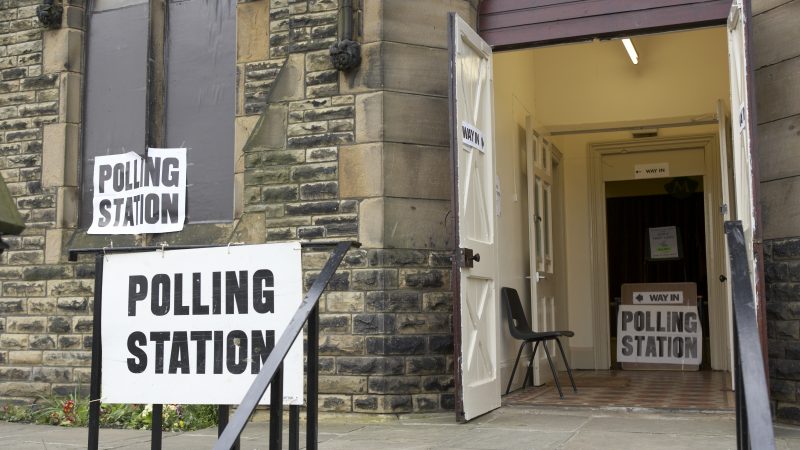
In his new year speech, Keir Starmer addressed a country engulfed by multiple crises. From the political turmoil caused by a year when the UK had three Prime Ministers, to the soaring cost of living and crumbling public services, few could credibly disagree that much is rotten in the country. What is significant is that the Labour leader’s proposed policy response to this has democratic reforms at its centre.
Life is getting tougher and tougher for millions of people in Britain. Almost every area of public infrastructure needs urgent attention. Both the country’s deep social wounds and the callous complacency of the Johnson, Truss and Sunak governments are symptoms of something profoundly and systemically wrong with our politics.
This week, we are seeing in technicolour the carnage this system and this government are wreaking on the country. As the NHS buckles under the worst winter crisis, the government has mounted an unprecedented assault on public sector workers’ right to strike. Its anti-democratic credentials are already well-established through its attacks on the right to protest. Later this year, thousands could also be barred from voting if they cannot show ID at the polling station. Its latest democratic demolition job appears to be on the rights of Scotland’s parliament.
So Starmer was right to say “the Westminster system is part of the problem”. Highlighting the short-term mindset which dominates our politics, he set out how tackling Britain’s economic stagnation and entrenched inequality must mean fundamentally changing the political system which underpins them. His argument that we need “both new government and a completely new way of governing” will ring true to the vast majority of people, who polling shows have record levels of dissatisfaction with politics.
Starmer’s solution is to promise the “greatest ever” transfer of power from Westminster to the British people in the form of an expansive programme of devolution. This proposal was made just weeks after Gordon Brown’s commission published a report also calling for devolution alongside the replacement of the House of Lords with a new elected chamber and other democratic reforms. Such reforms are long overdue. The UK is one of the most centralised countries in Europe, and its unelected second chamber is an indefensible anachronism. Labour is right to put democratic repair at the heart of its policy programme.
Yet the disastrous breakdown of our public services was not caused by a lack of devolution. The spiralling cost of living and real-terms wage cuts cannot be blamed on our unelected House of Lords. It is the House of Commons which is the ultimate custodian of political power in the UK – and it is at its door, and that of No 10, that the blame for broken Britain must be placed.
No programme to fix our politics and deliver the “completely new way of governing” Starmer says he wants can succeed if it ignores how our primary chamber is elected. The Westminster system is bust – and nothing defines and shapes it more than the first-past-the-post (FPTP) electoral system at its heart.
FPTP privileges small groups of voters in an ever-diminishing number of marginal seats, leaving huge swathes of the country effectively forgotten politically. This dynamic dictates the way Westminster governments operate, creating perverse incentives for ministers to focus on pleasing narrow slivers of the electorate.
Anybody who has worked in Westminster or campaigned in UK general elections knows this. I don’t believe most people go into politics because they want to satisfy the wishes of a small minority of swing voters in marginal seats. Most people go into politics with a notion of public service. Many bring rich experience and genuine ambition to affect change in their communities. Some have big ideas about changing the world. But then party HQ does the maths. Electoral calculators come out, targeting comes in, bold visions evaporate.
It is no surprise, as Starmer himself said, that we are plagued by the worst regional inequality in Western Europe. Our political system means that large parts of the country carry no weight in Westminster. Millions of us know that our votes don’t count because, come election time, nobody asks for them. Policies are designed to woo the swing-voting few whilst the doors of so-called safe seat voters go un-knocked. And we know devolution alone won’t solve this inequality because many of the most ‘left behind’ places – like parts of South Wales and Northern Ireland – have had devolved governments for decades.
That’s why Labour members and trade unions overwhelmingly want a system which does not airbrush out most of Britain. We want proportional representation (PR) for general elections – as Labour’s historic conference vote in favour of PR showed – because we know that the gross economic inequality that disfigures the UK is inextricably linked to the deep political inequality created by our voting system.
Introducing PR would ensure that parliament, and the government derived from it, accurately reflects the way the whole country votes. It would start a real process of ‘levelling up’, in which every part of the country would have to matter to those in power. Policy programmes focus-grouped to appeal to a prototype target swing voter would have to give way to a more rounded, inclusive politics – in which every voter’s needs and rights would count.
The Labour leader promises a political system that trusts people “with the power to control their own destiny”, but that cannot happen whilst so many of us don’t have a vote that counts. Starmer is right that Westminster is the source of Britain’s problems – but a proportional electoral system must be part of Labour’s solutions. Otherwise, the democratic reforms of the next Labour government will be yet another sticking plaster.




More from LabourList
‘Labour won’t stop the far right by changing leaders — only by proving what the left can deliver’
‘Cutting Welsh university funding would be economic vandalism, not reform’
Sadiq Khan signals he will stand for a fourth term as London Mayor